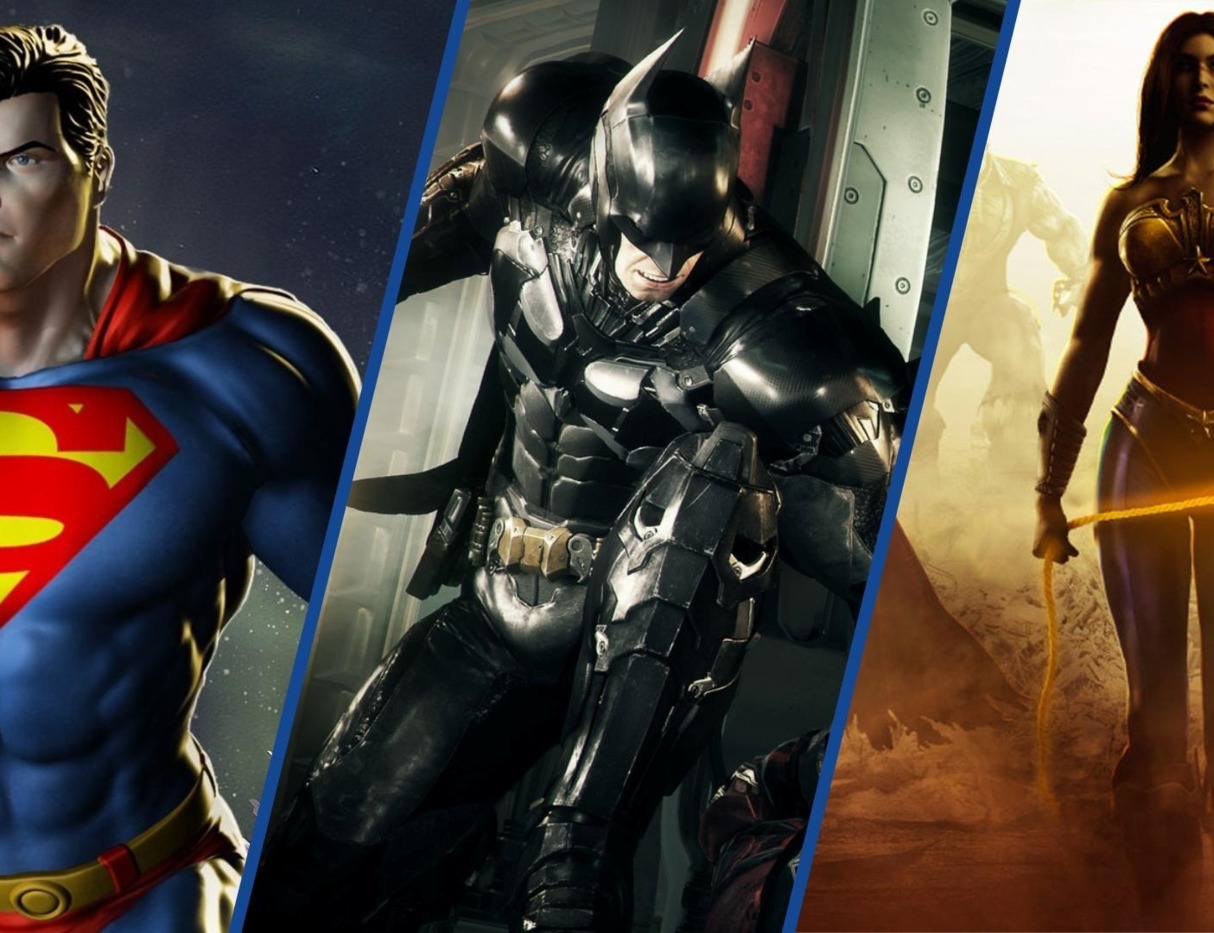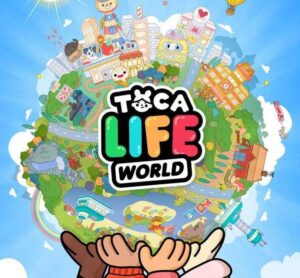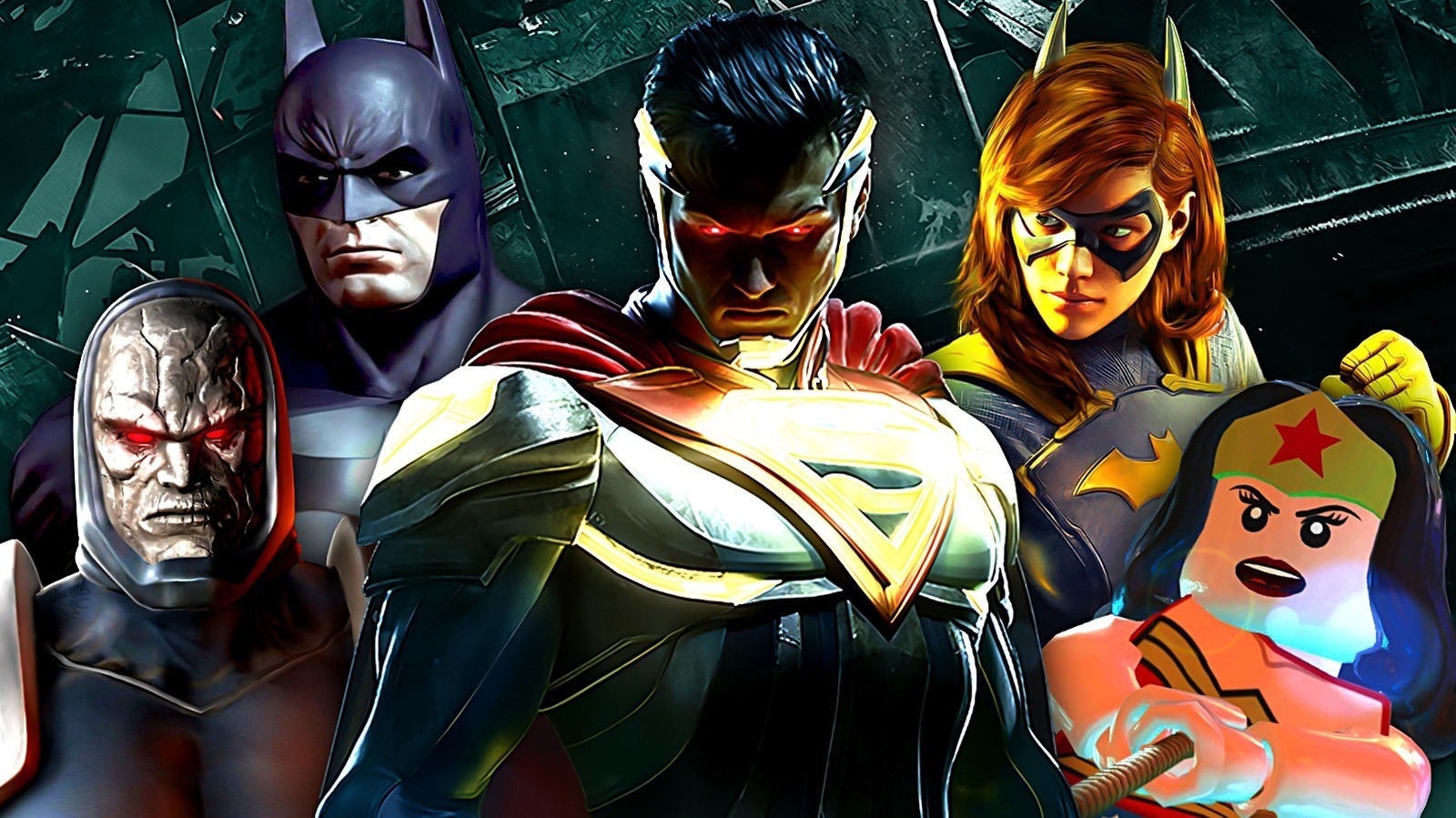Ranking the DC Gaming Universe: A Deep Dive from “Arkham” to “Aquaman”
Popular Now
 CarX Street
CarX Street
 Gacha Club
Gacha Club
 Schedule I
Schedule I
 Warframe
Warframe
 Rust
Rust
 Black Myth: Wukong
Black Myth: Wukong
 Brawl Stars
Brawl Stars
 Fall Guys
Fall Guys
 Fortnite
Fortnite
 Counter-Strike 2
Counter-Strike 2  With a storied history spanning decades, the DC Universe has had a mixed, but often brilliant, record in the world of video games. From groundbreaking cinematic adventures to legendary missteps, every title tells a story about a particular era of gaming. A recent video has taken on the monumental task of ranking every DC game ever made, and while the exact order is always up for debate, the core tiers of quality are surprisingly consistent across the board.
With a storied history spanning decades, the DC Universe has had a mixed, but often brilliant, record in the world of video games. From groundbreaking cinematic adventures to legendary missteps, every title tells a story about a particular era of gaming. A recent video has taken on the monumental task of ranking every DC game ever made, and while the exact order is always up for debate, the core tiers of quality are surprisingly consistent across the board.
Our comprehensive analysis of the DC video game library reveals a clear hierarchy, from the genre-defining masterpieces to the forgotten relics that deserve to stay buried.
 The Top Tier: Uncontested Champions
The Top Tier: Uncontested Champions
At the pinnacle of the list sits a collection of games that not only did justice to their source material but also set a new standard for superhero games across the industry.
- The Batman: Arkham Trilogy (and “Origins”): This series, which began with Batman: Arkham Asylum, is consistently ranked at the very top. The games are praised for their fluid combat, intricate narratives, and pitch-perfect atmosphere. They redefined what a superhero game could be, proving that a single-character IP could support a deep, mature, and critically acclaimed franchise.
- The “Injustice” Series: The Injustice fighting games, developed by NetherRealm Studios, are universally lauded. They combine the brutal combat of Mortal Kombat with a surprisingly compelling storyline and a diverse roster of DC heroes and villains. They are considered the gold standard for superhero fighting games.
- Telltale’s “Batman” and “The Wolf Among Us”: Telltale Games’ cinematic adventures are recognized for their excellent storytelling and character work. Batman: The Telltale Series offered a fresh take on the Dark Knight, while The Wolf Among Us, based on the DC/Vertigo comic series Fables, is a noir mystery that is often considered one of Telltale’s best works.
These titles represent the best of what DC gaming has to offer, showcasing a level of creative and technical excellence that has cemented their legacy.
 The Mid Tier: Solid, but Flawed
The Mid Tier: Solid, but Flawed
This category is a mixed bag of games that are either enjoyable but uninspired or that had great ideas but struggled with execution.
- The “Lego Batman” and “Lego DC” Games: These titles are a consistent bright spot. They are praised for their family-friendly humor, cooperative gameplay, and massive rosters of characters. While they don’t break new ground, they are a reliable source of fun for players of all ages.
- “DC Universe Online”: Despite a rocky launch, this long-running free-to-play MMO has carved out a loyal following. It’s not a technical marvel, but its sheer scale and commitment to a continuously evolving narrative have earned it a respectable place in the DC gaming pantheon.
- “Mortal Kombat vs. DC Universe”: While often criticized for its toned-down violence, this fighting game is seen as a pivotal title that laid the groundwork for the superior Injustice series. It was a bold crossover that showed the potential of a shared universe in a fighting game.
The Bottom Tier: A Hall of Shame
This list is incomplete without mentioning the games that have become notorious for their poor quality. These titles are a cautionary tale of rushed development and missed opportunities.
- “Superman 64”: Widely considered one of the worst video games ever made. Its broken controls, illogical objectives, and infamous “rings” are a punchline that has transcended generations of gamers.
- “Catwoman” (2004): A game that is almost as reviled as the movie it’s based on. The platforming is clunky, the combat is repetitive, and the camera is a special kind of awful.
- “Aquaman: Battle for Atlantis”: This title is infamous. So much so that a video game review show created an award for the worst game of the year and named it the “Golden Mullet” in reference to the game’s terrible depiction of Aquaman.
While the DC gaming universe is a wildly inconsistent one, its best titles stand as a testament to the enduring power of its characters and stories.









 The Top Tier: Uncontested Champions
The Top Tier: Uncontested Champions The Mid Tier: Solid, but Flawed
The Mid Tier: Solid, but Flawed